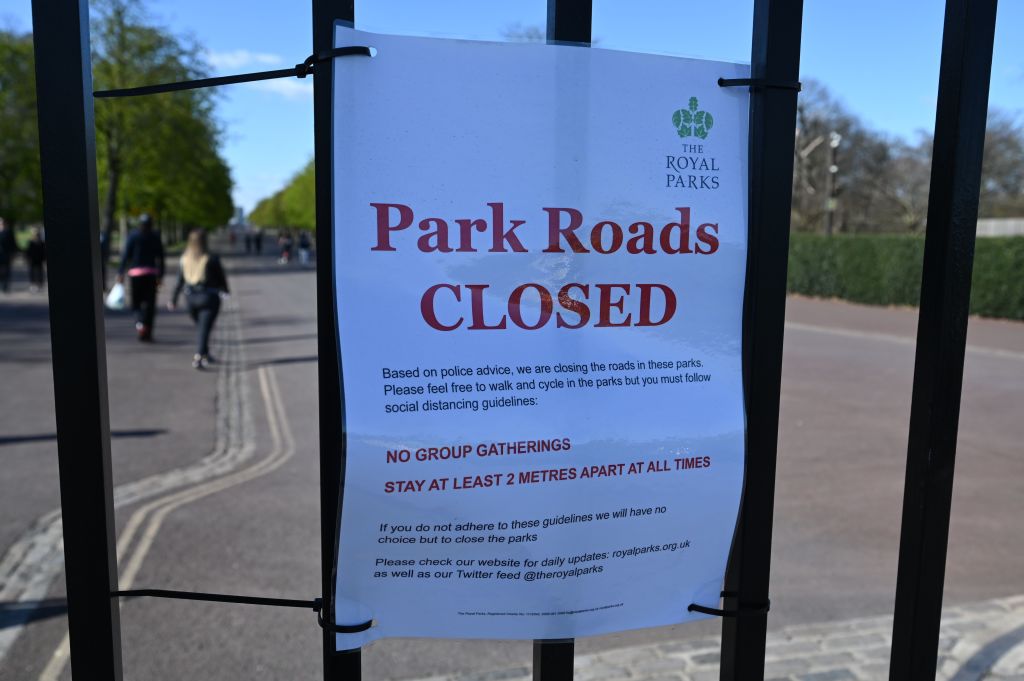Matt Hancock has threatened that the government will ban all forms of outdoor exercise if a ‘minority’ of people continue to ignore social distancing rules.
Ministers had been worrying that this weekend, which is sunny and warm, would see people trying to get around the lockdown by congregating in parks. Yesterday there were reports – not all of them hugely reliable or conclusive – of large numbers of people turning up to their local parks, with police forces dispersing groups and stopping people from sunbathing. Lambeth Council has announced Brockwell Park in London will be closed today after too many people converged on it.
Hancock’s threat looked inevitable before the weekend had begun, but given today’s weather is going to be even lovelier, he issued this warning on Marr:
One of the problems in Britain is that while the rules themselves are relatively simple, everyone is offering slightly different interpretations of them.
‘My message is really clear: If you don’t want us to have to take the step to ban exercise of all forms outside of your own home, then you have got to follow the rules.
‘The vast majority of people are following the rules. Let’s not have a minority spoiling it for everybody.’
In other countries such as France and Italy, the perimeter around someone’s home where they can exercise has gradually shrunk as the lockdown has tightened. One of the problems in Britain is that while the rules themselves are relatively simple, everyone is offering slightly different interpretations of them. It’s not just the heavy-handed policing that I covered earlier in the week, but also ministers who find themselves asked about specific examples in broadcast interviews and can’t resist embellishing on the official guidance. No. 10 corrected Transport Secretary Grant Shapps after he said people should only leave the house to buy essentials once a week. Michael Gove set his own exercise time limits, telling the public they should walk for no more than an hour and jog for no more than half an hour, despite this not being anywhere in either the regulations or the guidance. Hancock today struggled to explain why sunbathing alone in a park was any more dangerous than going for a jog alone.
Obviously sunbathing is neither exercise nor essential (though vitamin D is), but beyond that there is a gap in rationale which makes it easier for people to either conclude that the government is making this up as it goes along (which it is – of course, out of necessity – given there is no real example of best practice in how to deal with a virus no one had heard of a few months ago), or that they’re not really doing anything wrong.
The best rationale for banning sunbathing comes from medics who have explained that this sort of lingering may make it more likely for people to start chatting to one another and then congregate in groups outside of their own household.
There is widespread frustration that while most people are limiting their time outdoors and going to great lengths to practise the social distancing requirements, a minority of people are still meeting in groups and aren’t keeping 2 metres apart from those they pass while running or walking. This frustration will be particularly felt by those without any private outdoor space, who live in high-rise flats and who have small children who need to get out.
The government has been admirably clear so far that, while stopping the spread of the virus is the priority, people’s mental health is important, too, and that getting outside is likely to help the country manage a long period of lockdown. They have taken extensive and elaborate steps to protect the economy as much as it can, but given the impact of mental ill-health on the economy (between £74 billion and £99 billion per year), it may need to take similarly creative steps to prevent an epidemic of mental illness caused by people being unable to get outside and exercise – both of which are proven to improve mental health and alleviate mental illness.
This might involve a ticketing system for parks which prioritises those without outdoor space, or specific times of day when people in certain categories can exercise. And it might also involve ministers being much clearer and more disciplined in saying what is currently permitted and why.







Comments